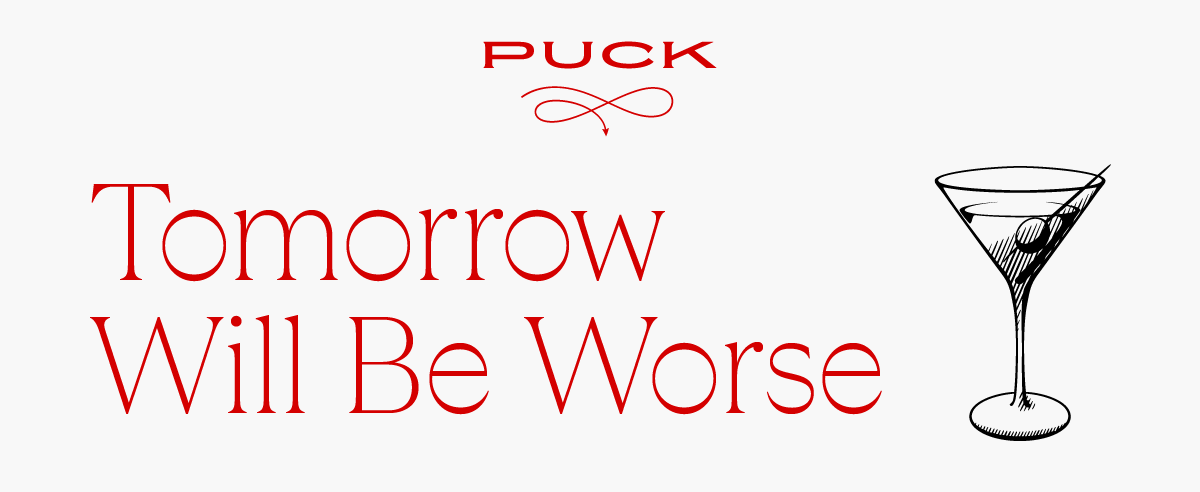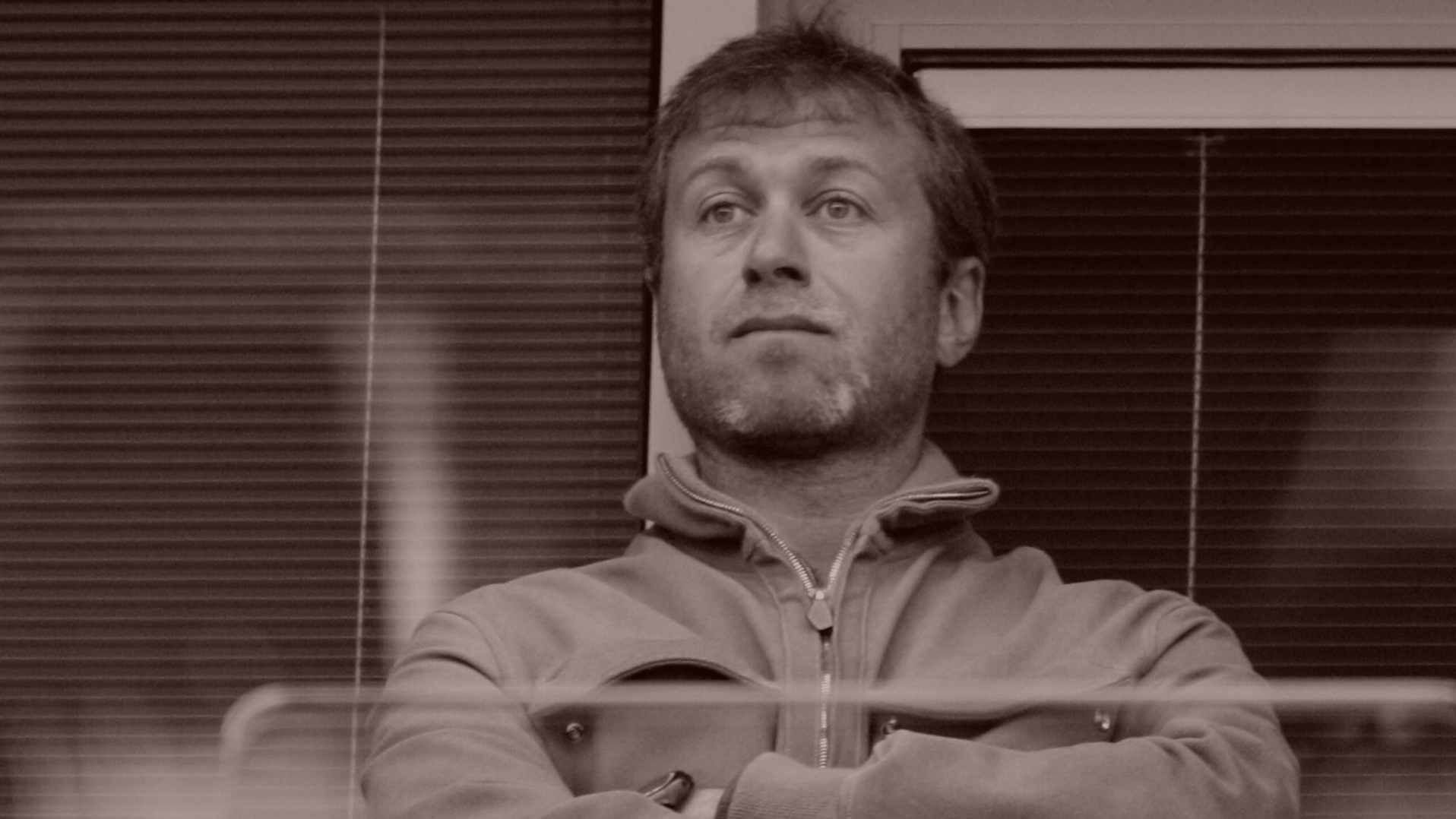 |
|
Hello, and welcome back to Tomorrow Will Be Worse, your regular dispatch from Washington, D.C., which was convulsed this past weekend in a spasm of post-pandemic partying surrounding the White House Correspondents’ Dinner, a.k.a. “nerd prom.” The dinner had been canceled for the last couple years because of the pandemic, but this weekend, the town, hungry to socialize and return to whatever normalcy looked like before 2020, threw caution to the wind and spent two days yelling in each other’s faces over loud music, devouring awkwardly-sized canapés, and posing for photographs in their nerd prom best. Yours Truly was no exception: after three vaccine shots and two bouts of Covid, I figured the biggest event of the D.C. social calendar was worth the risk.
I won’t lie. I managed to have a wonderful couple of evenings—a welcome, if guilty, break from thinking constantly about the horrors of the war in Ukraine. Of course, this being Washington, there was the occasional person who congratulated me on how great this war was for my career and there were a couple times when I found myself catching up with sources over what the U.S. would do in the event of a Russian nuclear strike in Ukraine or whether the U.S. would sanction the mistresses of Russian officials in what staffers are jokingly calling “Operation Sidepiece.”
But of course, the war is always there. May 9, or Victory Day, is just around the corner, and the rumors that Russia will begin a full mobilization are growing stronger. (As one British official recently mused, it will be Putin’s way of saying, “I need more cannon fodder.”) Ukraine continues to be battered by Russian forces, even as Russia’s army struggles to gain ground. Over five million Ukrainians have now fled the country but, given the military momentum of the Ukrainian army and the military aid coming their way, there is almost no appetite in Ukraine for any kind of negotiated settlement with Russia. Why quit, the thinking goes, while we’re ahead? And why negotiate with an enemy who has proven, over and over again, that they are absolutely untrustworthy? As if to prove their point, the Russian government seems to be fomenting something in Moldova, perhaps to open a second front in Ukraine...
As a reminder, you're receiving the free version of Tomorrow Will Be Worse at {{customer.email}}. For full access to Puck, and to each of my colleagues, you can subscribe here.
|
|
|
|
SPONSORED BY RAZOM
|

|
|
|
 |
| Putin vs. His Oligarchs |
| As Russia’s invasion of Ukraine enters its third month, Putin’s chummy ruling class is feeling the burn. It’s a reminder that they were never so chummy in the first place. |
|
|
|
Catherine Belton’s book, Putin’s People, is the kind of work that comes around once in a generation and defines it. Just as David Hoffman’s The Oligarchs was the definitive account of the ruling class of the Boris Yeltsin era, Putin’s People is the best record of the Putin era. Starting in 1980s Dresden and taking the reader through to the present day, Belton shows exactly how Vladimir Putin used his position and connections in the K.G.B., and later the F.S.B., to build a shadowy financial empire, one that he has used to fund Moscow’s efforts to undermine the West. In Washington, the book made a big splash since it was published a year ago. It has been read and discussed everywhere from Capitol Hill and the White House to C.I.A. headquarters at Langley. Which bodes well for the U.S. government’s view of Russia: if they’re imbibing Belton’s meticulous and original reporting, as well as her accurate portrayal of how Putin’s Russia runs, then there’s a good chance they won’t be as misguided as in years past.
I don’t just say that because Catherine is an old friend from our days as reporters in Moscow, though I’ll admit that I’m obviously a little biased. By the time I arrived in the Russian capital in 2009, Catherine had been living and working there for years, which she had started doing, off and on, since the Soviet collapse. And because she had been there in the relatively loose 1990s, she was on a first-name basis with many of the Yeltsin-era oligarchs. Like the rest of the foreign correspondents in Moscow, I had always looked up to Catherine, whose dogged and lucid reporting on the murky financial dealings of Russia’s oligarchs, had earned her the nickname “the Beltron.” She was a machine, yes, but it took more than that to find needles in the haystacks of financial disclosure, and to earn the trust of some of the most (justifiably) paranoid people in the country. Catherine deftly managed both, making her an absolute legend...
|
|
|
| ADVERTISEMENT |
 |
|
|
|
|
|
| FOUR STORIES WE’RE TALKING ABOUT |
 |
| Peak TV's Plunge |
| Matt and Bloomberg’s Lucas Shaw break down the rapidly approaching end-times for peak TV. |
| MATTHEW BELLONI |
|
 |
| Post-Roe Nuclear Fallout |
| Puck’s Tara Palmeri joins Peter to discuss the stunning revelation that the SCOTUS is poised to overturn Roe. |
| PETER HAMBY |
|
 |
| The A.I.-I.P. Supernova |
| Will robots eventually replace us? Who knows. But either way, they're going to learn how to create superhero movies. |
| ERIQ GARDNER |
|
 |
| Elon's Eject Button |
| Musk essentially only bought a $1 billion call option to buy Twitter, but various market moves suggest things are lining up. |
| WILLIAM D. COHAN |
|
|
|

|
|
|
You received this message because you signed up to receive emails from Puck
Was this email forwarded to you?
Sign up for Puck here
Sent to
{{customer.email}}
Unsubscribe
Interested in exploring our newsletter offerings?
Manage your preferences
Puck is published by Heat Media LLC.
64 Bank Street
New York, NY 10014
For support, just reply to this e-mail
For brand partnerships, email ads@puck.news |
|
|













